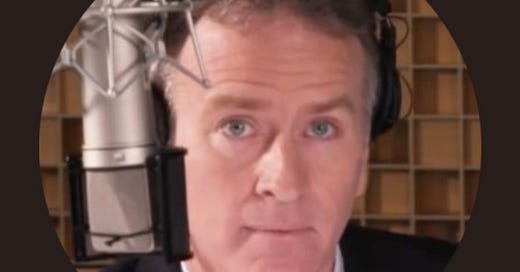Several of my friends over the years have had to listen to me express an observation about politics. It concerns the success of Barack Obama, who not only won two terms as president but also finished his service as a broadly popular leader.
Obama’s historic role as the first Black president was just one of his identities. Just about all of us have more than one; and he was also a Midwesterner. I felt that he drew on those roots as he framed his approach to war and peace, to social issues, even industrial policy.
I’m reluctant to define Midwesternism too precisely, except to say the region is a little older, a little whiter, a little more conservative and more rural than other places—yet is also industrial, far more diverse than people assume, and home to certain traditions of progressive thought. Many Midwesterners take a humble and polite approach to others (which is often but not always sincere!) but are also ready to call b.s. on someone’s pretentions, and are sensitive to the idea that they are looked down upon. It’s a nuanced and complicated place.
Appealing to this region, Obama promoted old-line factories. He backed fracking. He talked about race with great subtlety and care. When he supported gay marriage in 2012, he spoke of it not in elite academic terms but as a universal value that anybody would want—the right to be with who you love. Even his much-criticized backing away from a “red line” in 2013, declining to strike Syria for using chemical weapons, had a Midwestern tinge—a reluctance to do what the eastern foreign policy elite thought he should.
The results were visible on the electoral map. Obama won Indiana in 2008, which no Democrat had done in generations and no Democrat has done since. He won Iowa. He twice won the Midwestern states of Michigan and Wisconsin, as well as the quasi-Midwestern state of Pennsylvania, so convincingly that they seemed to be part of a “blue wall” of permanently Democratic states. The 2016 election, when he was no longer on the ballot, showed they were not.
Well, those three states matter a lot in 2024. And in tonight’s vice presidential debate, two Midwesterners face off: J.D. Vance of Ohio and Tim Walz of Minnesota. How are they at talking Midwestern?
On NPR last week, my friend and fellow Midwesterner Asma Khalid explored how the candidates do this. “When I hear Vance and Walz speak, it all sounds like home, even though they're offering different visions of the country,” she says.
VANCE: America's ruling class wrote the checks. Communities like mine paid the price. For decades, that divide between the few with their power and comfort in Washington and the rest of us only widened.
KHALID: And here's Walz on abortion.
WALZ: Because in Minnesota, we respect our neighbors and the personal choices they make. And even if we wouldn't make those same choices for ourselves, we've got a golden rule - mind your own damn business.
You hear one candidate telling his audience that the elites look down on them. You hear the other promoting a liberal value, reproductive freedom, in essentially conservative terms—about respect for your neighbors and the right to be left alone.
There’s a lot more in this story, including interviews with our fellow Hoosiers Mitch Daniels and Pete Buttigeig. I’d recommend a listen in preparation for tonight’s debate. It certainly will inform the way that I watch and listen to the candidates.




As a life long Midwesterner, I have never seen our perceived ethos so succinctly summarized.
I do want to say that I fear these political fissures may be too much for us to overcome.
Splitting hairs, but the Industrial and collegiate Midwest are a little different than the suburban and rural Midwest. Unfortunately, we get lumped together.